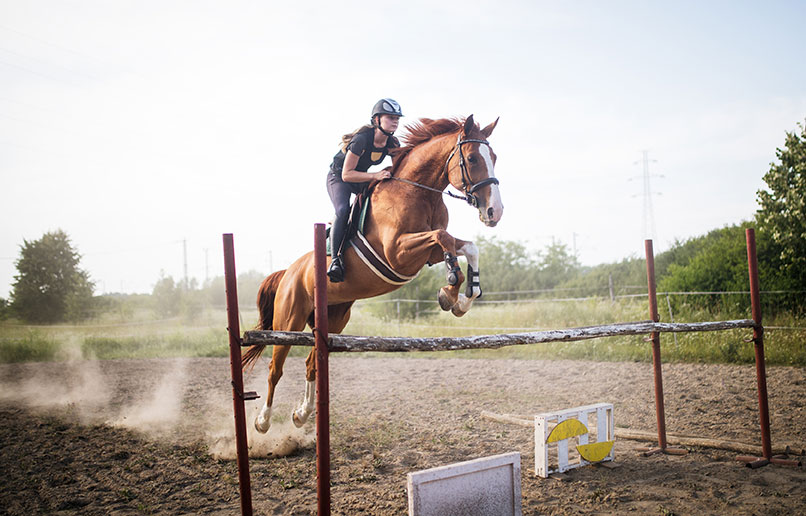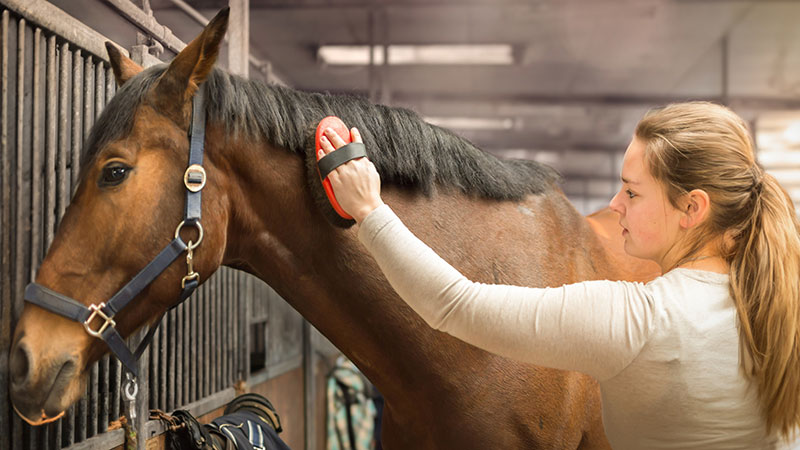How To Train A Racehorse: A Beginner's Guide
Looking at big, strong horses with shiny coats powerfully galloping on a racetrack can make one wonder what it takes to train such a beautiful animal to be competition-ready. Training a racehorse is both an art and a science. It requires a comprehensive approach that blends technique, patience, and a deep understanding of the horse's psychology and physical capabilities.

If you'd like to know more, this guide will take you through the essential steps to transform a young horse into a well-prepared athlete for the racetrack. Read on!
Understanding the Basics of Racehorse Training
Racehorse training involves much more than simply getting the horse to run fast. It's about developing a systematic approach that includes exercise, mental conditioning, and meticulous racehorse management. At the core of any training program is a focus on horse care and grooming, which ensures that the horse remains in optimal health throughout the process.
Aside from keeping your beloved horse looking good, grooming is an essential routine that helps trainers and handlers assess the horse's physical condition on a daily basis. By regularly brushing the coat, cleaning the hooves, and checking for any signs of injury or discomfort, you build a bond with the horse while also maintaining its well-being. This connection is crucial for creating a training environment where the horse feels safe and willing to cooperate.
The Training Program: Crafting a Path to Success with the Help of Horse Trainers
A racehorse's success begins with a structured training program designed to suit its individual needs. Professional horse trainers play a vital role in developing and implementing these programs, using their expertise to guide each horse through a series of exercises that build speed, stamina, and agility. The training program should be adaptable and evolve as the horse progresses in its development.
A comprehensive training program typically includes several components:
1. Groundwork
This involves basic obedience and responsiveness training that helps the horse understand the rider's commands and cues. Groundwork lays the foundation for future training and ensures that the horse has the discipline required for more advanced exercises.
2. Endurance Training
Building stamina is crucial in preparing a horse for the grueling demands of a race. Interval training—alternating between periods of intense galloping and slower-paced jogging—is often employed to enhance the horse's cardiovascular capacity and muscular endurance.
3. Galloping
Regular galloping sessions are necessary to increase the horse's speed and conditioning. It's crucial to monitor the horse's heart rate and breathing during these sessions to ensure they are improving at a steady pace without being overworked.
4. Exercise Riders
These skilled individuals work alongside the horse trainers to ride the horses during training sessions, helping the young horses get used to the weight and guidance of a rider. Exercise riders play a crucial role in evaluating the horse's progress and providing real-time feedback to the trainers.
5. Interval Training
This type of training helps develop both speed and endurance. By alternating between high-speed galloping and slower-paced trots, the horse builds the stamina needed to sustain a fast pace over the entire length of a race.
6. Galloping Drills
Galloping sessions focus on increasing the horse's stride length and frequency. These drills must be performed on a variety of track conditions to ensure the horse is adaptable to different racing environments.
7. Hill Workouts
Running up and down gentle slopes helps to build muscle strength and improve the horse's endurance. This exercise is beneficial for developing the hindquarters, which provide the power needed for fast starts and strong finishes.
A well-designed training program, guided by skilled horse trainers, lays the foundation for transforming young horses into competitive racehorses. With the right blend of technique, patience, and consistent effort, these training routines can unlock each racehorse's full potential, setting them on the path to victory.
Horse Care Essentials: Grooming and Daily Maintenance

Maintaining a racehorse's health goes hand in hand with regular grooming and careful observation of its physical condition. Daily grooming not only keeps the horse's coat shiny and clean but also acts as a way to detect any signs of injury or illness early on. Pay attention to details such as swelling, heat in the joints, or changes in the horse's demeanor, as these could indicate underlying health issues.
Grooming also serves as an opportunity to strengthen the bond between the horse and the trainer. Building trust with your horse creates a cooperative partnership, making the training process smoother and more effective. This bond is essential when teaching the horse to tackle new challenges like the starting gate or interval training.
Transitioning From Training to the Racetrack
As the horse's training progresses, the transition to the racetrack becomes the final phase of preparation. At this stage, the focus shifts to refining the racehorse's skills, improving its racing strategies, and simulating actual race conditions. It's essential to replicate the actual racing environment as closely as possible, allowing the horse to become familiar with the sights, sounds, and movements of the track.
This phase often involves working closely with exercise riders, who play a critical role in guiding the horse during these practice runs. Experienced horse trainers monitor every detail of the horse's performance, making necessary adjustments to the training routine to ensure the horse reaches its peak condition on race day.
Conclusion
Training a racehorse is a demanding but rewarding endeavor that requires a blend of knowledge, patience, and dedication. From understanding the basics of grooming and horse care to implementing advanced training techniques and mastering the starting gate, every step in the process is crucial to the horse's development. With the right approach, a passion for horse racing, and a commitment to excellence, your journey into the world of racehorse training can lead to unforgettable moments of triumph.

